-
315k
Number of foreign workers on construction work permits here as of December last year.
86.6%
Percentage of the Bangladesh population who are Muslim.
HOME IN FOCUS
Their test of faith
Many Muslim foreign workers struggle to fast while coping with loneliness and heavy work during Ramadan
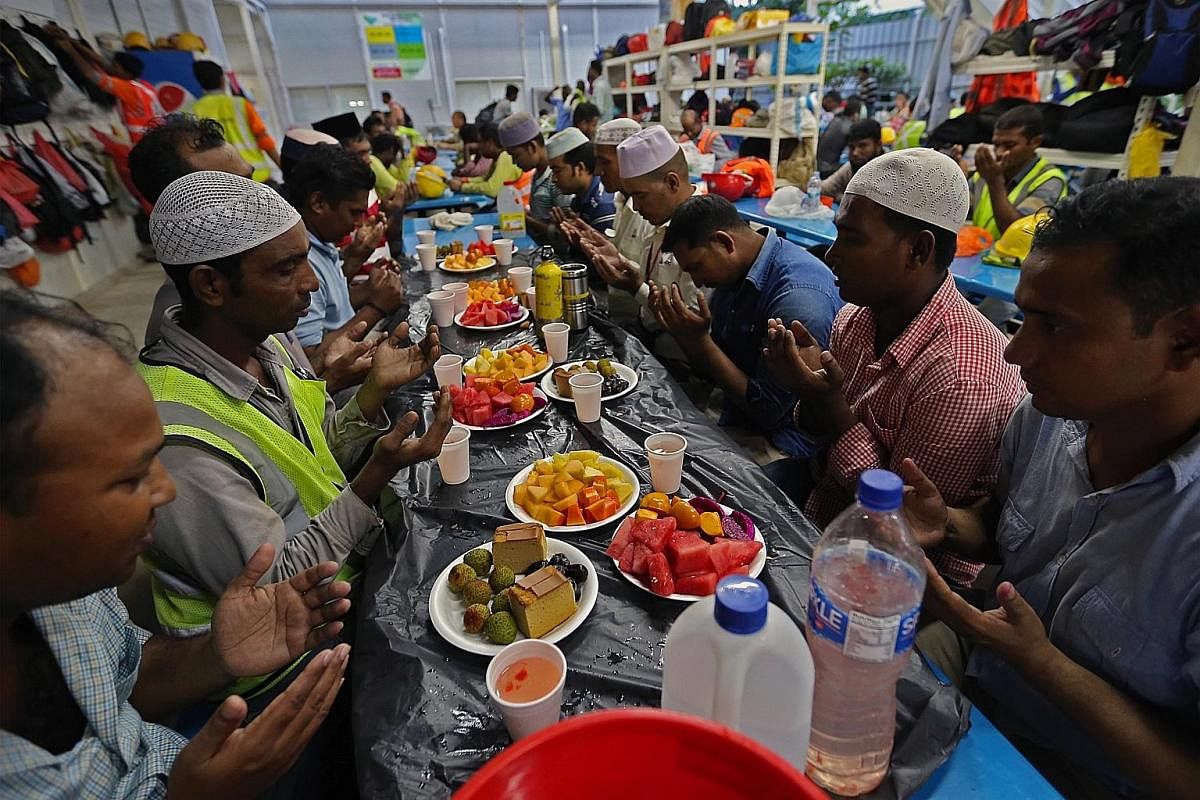
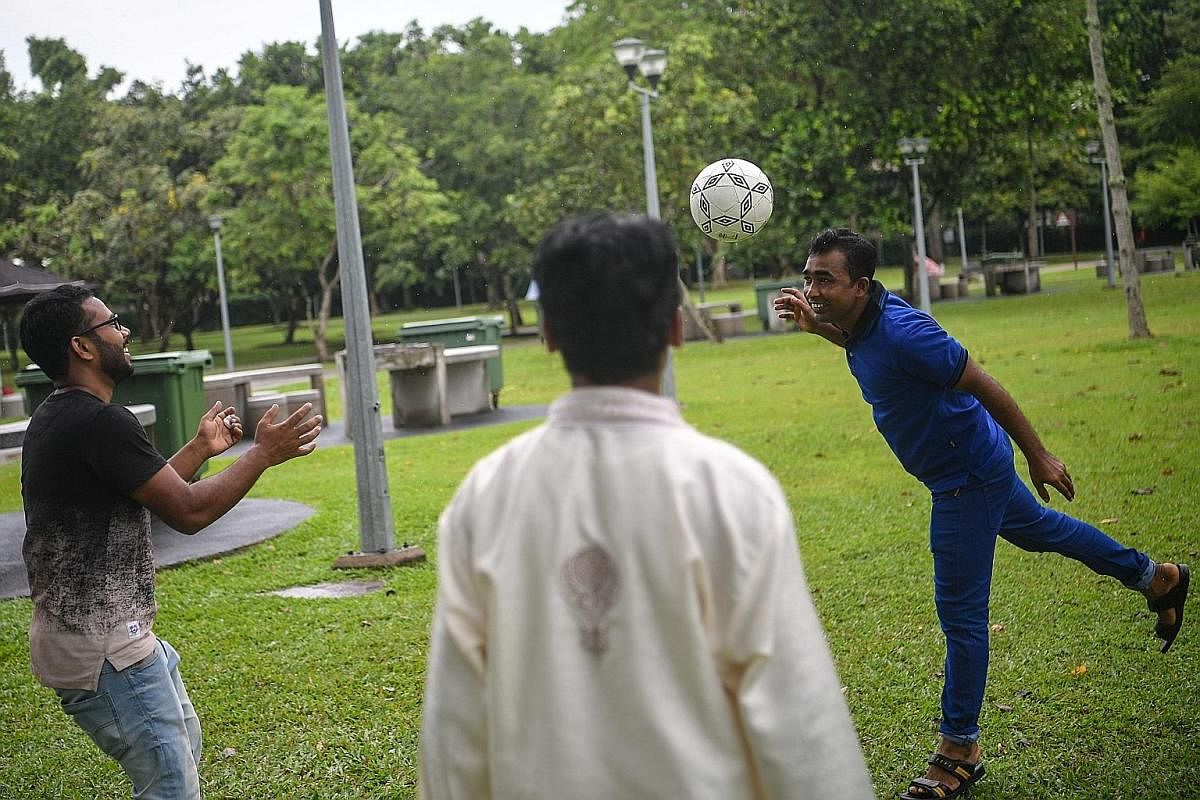
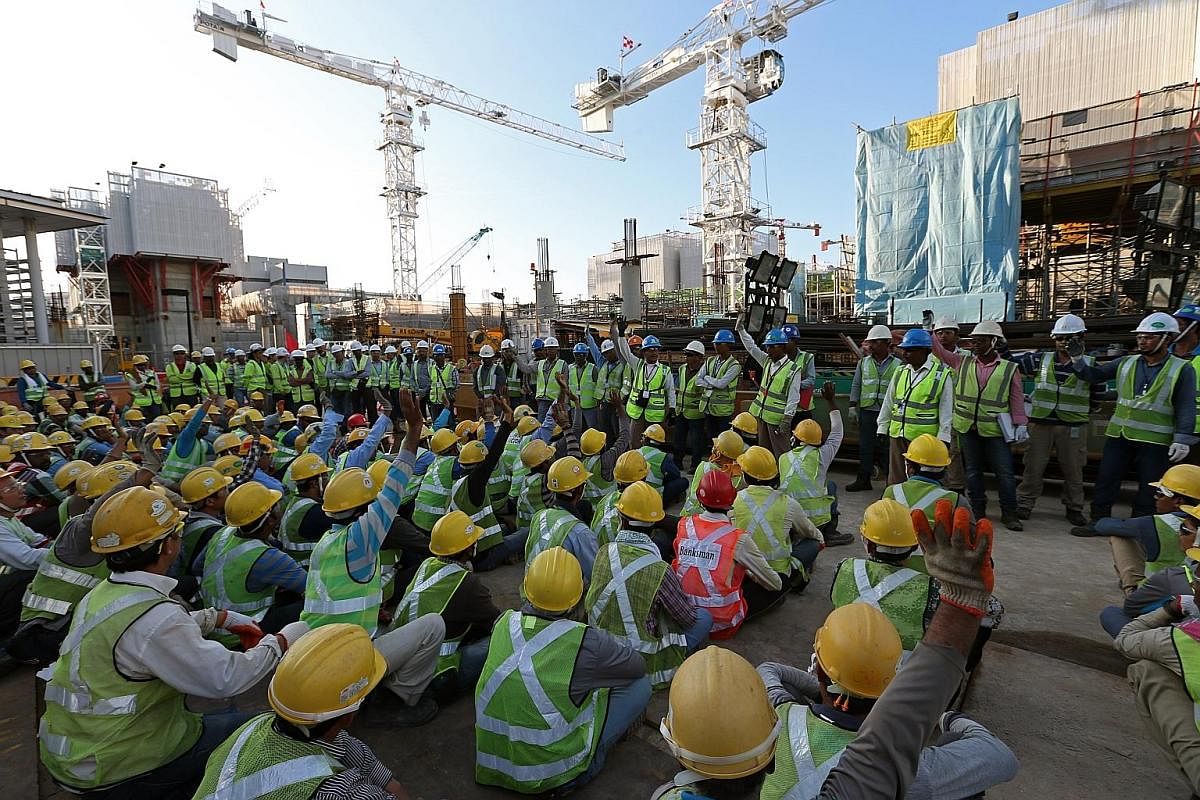
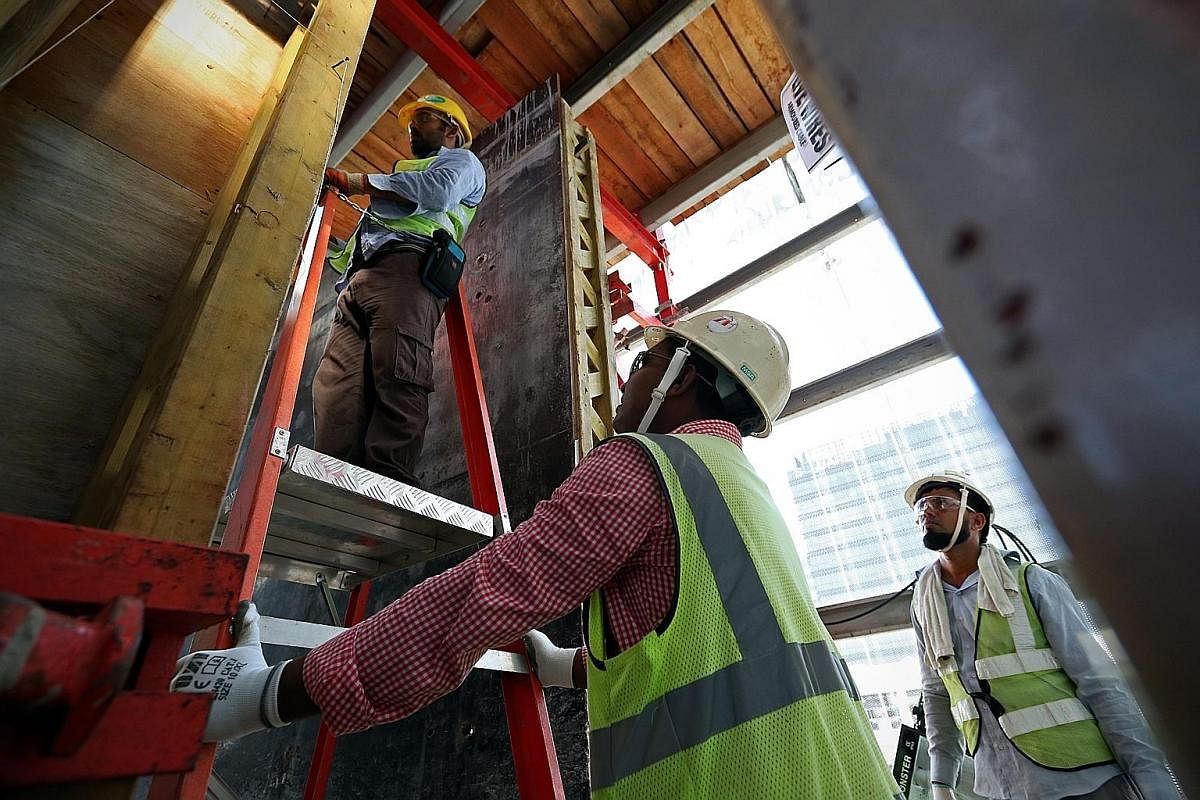
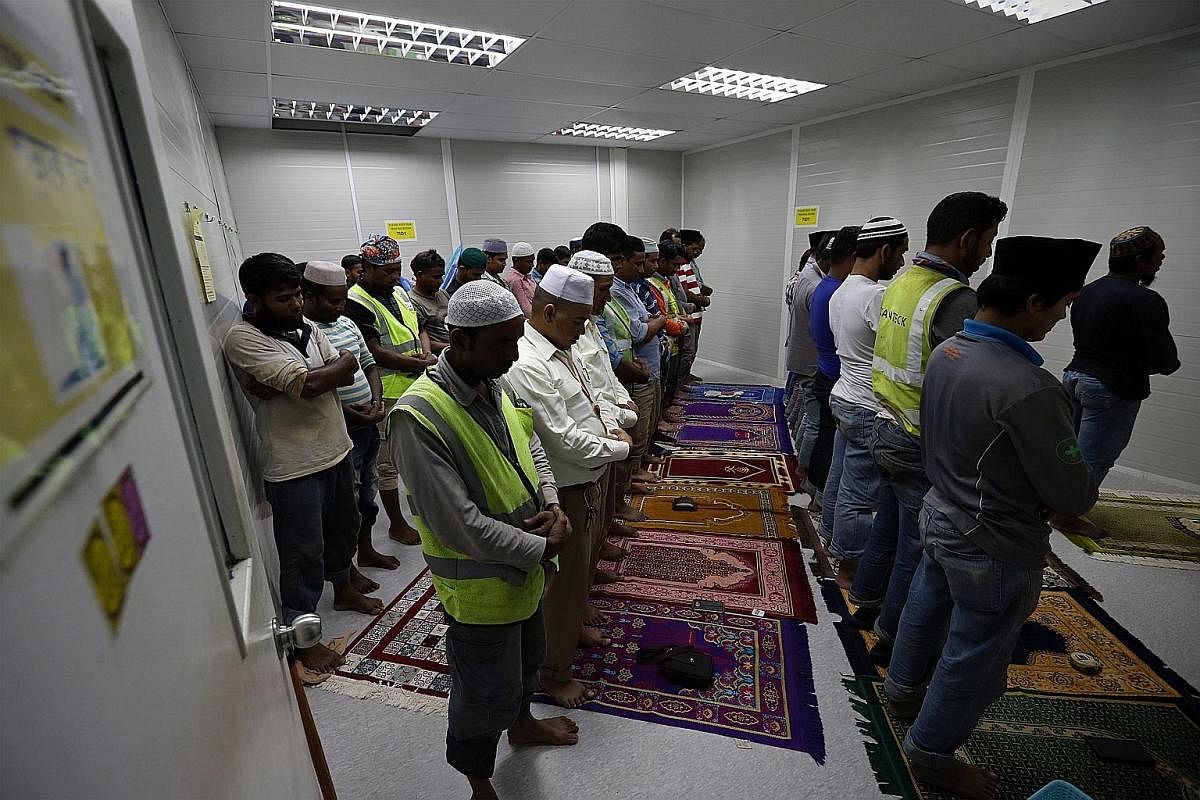
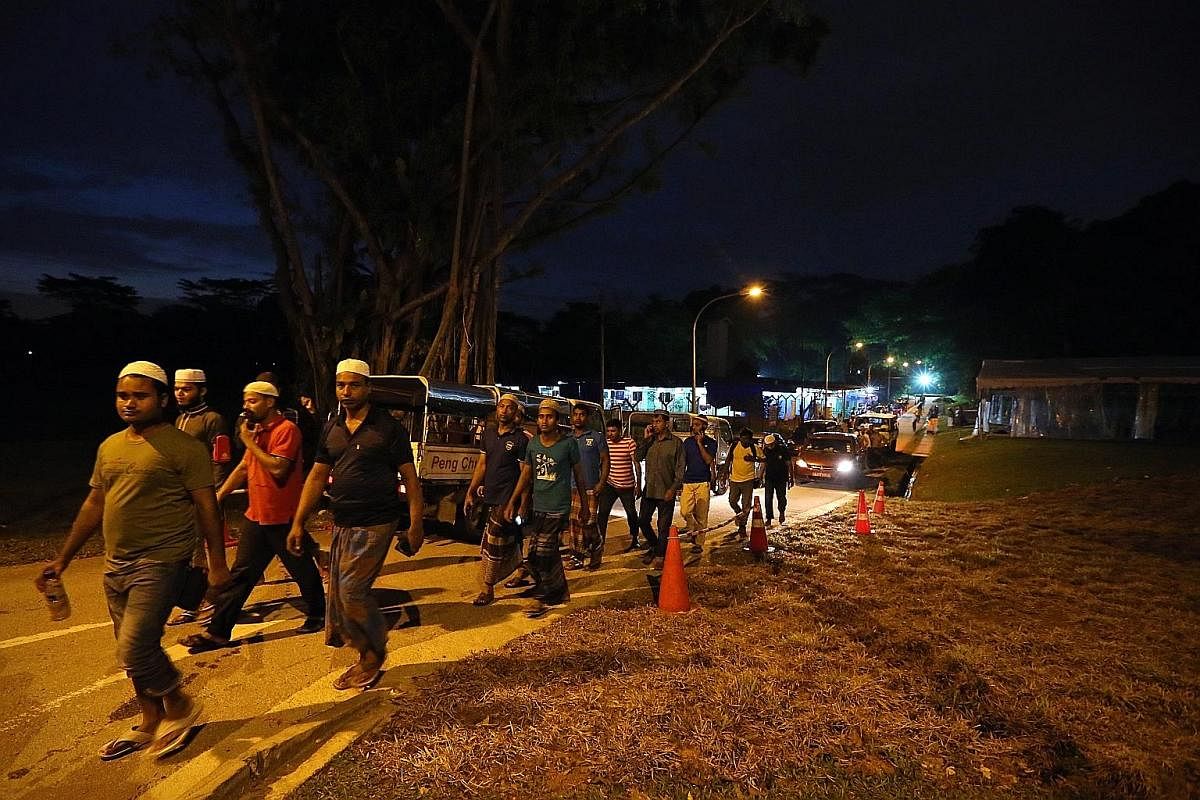
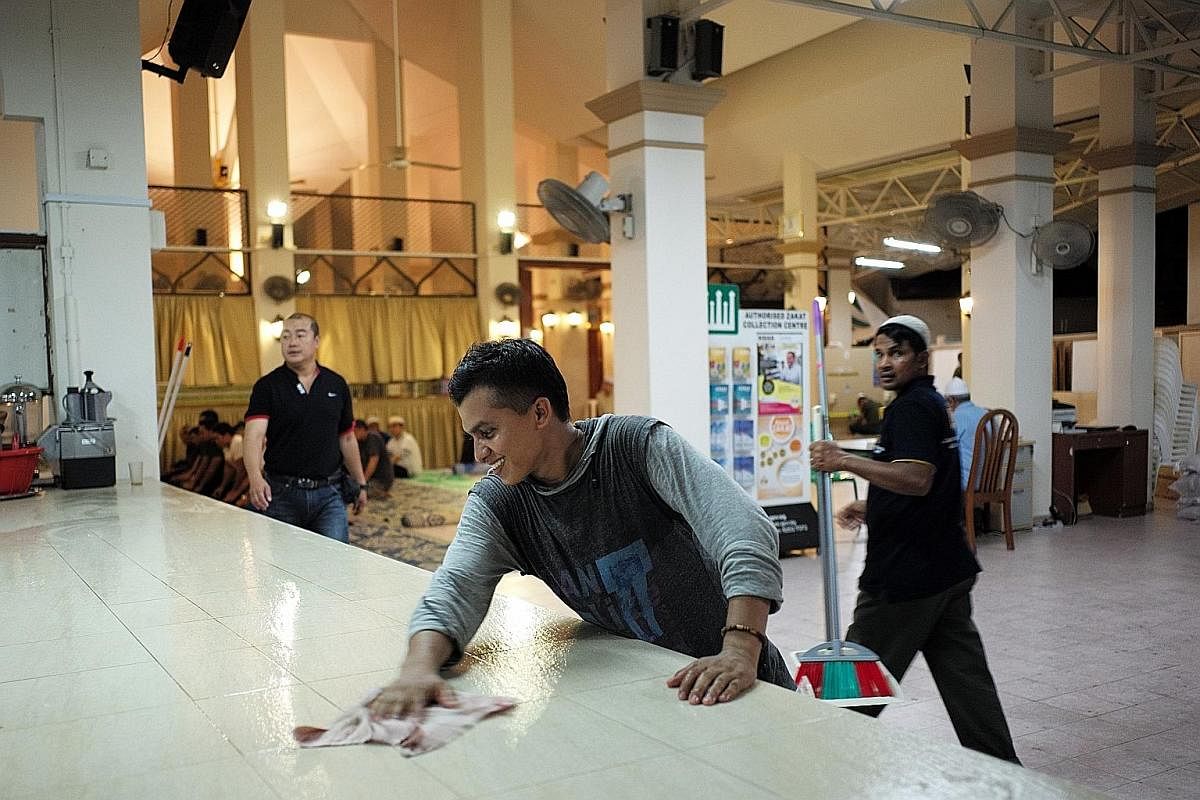
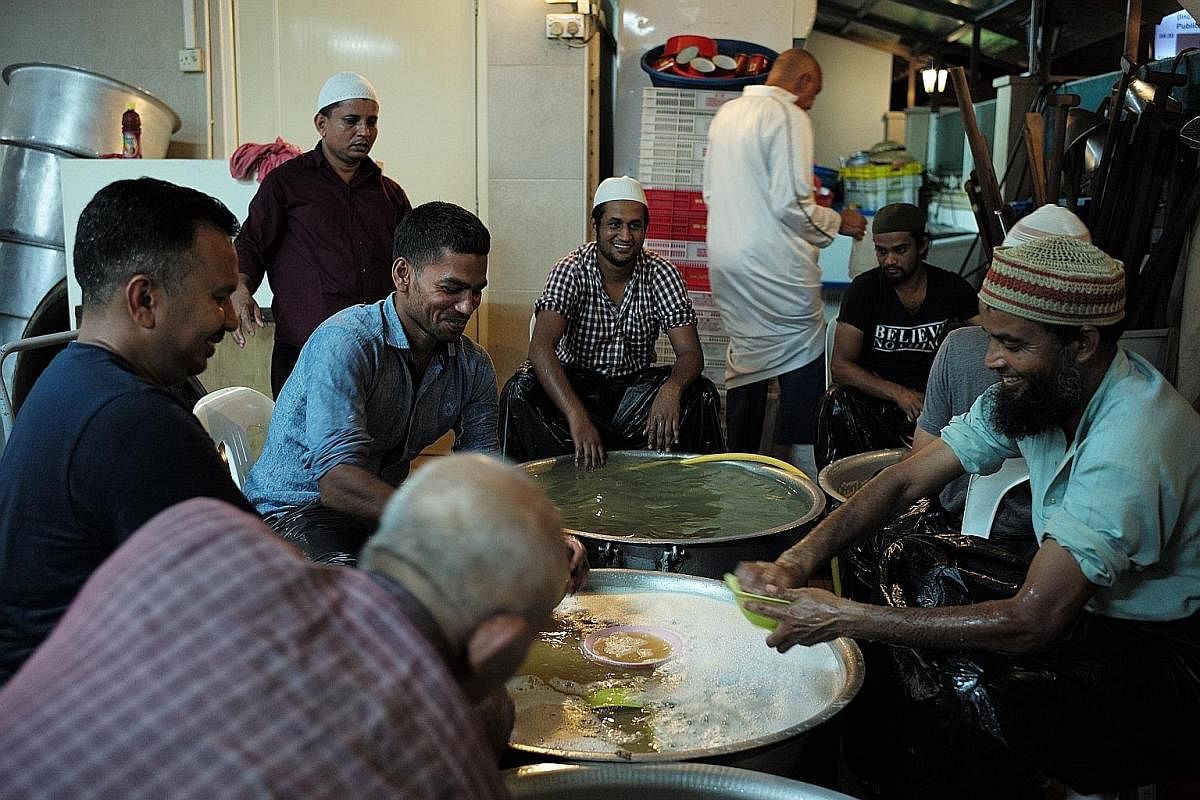
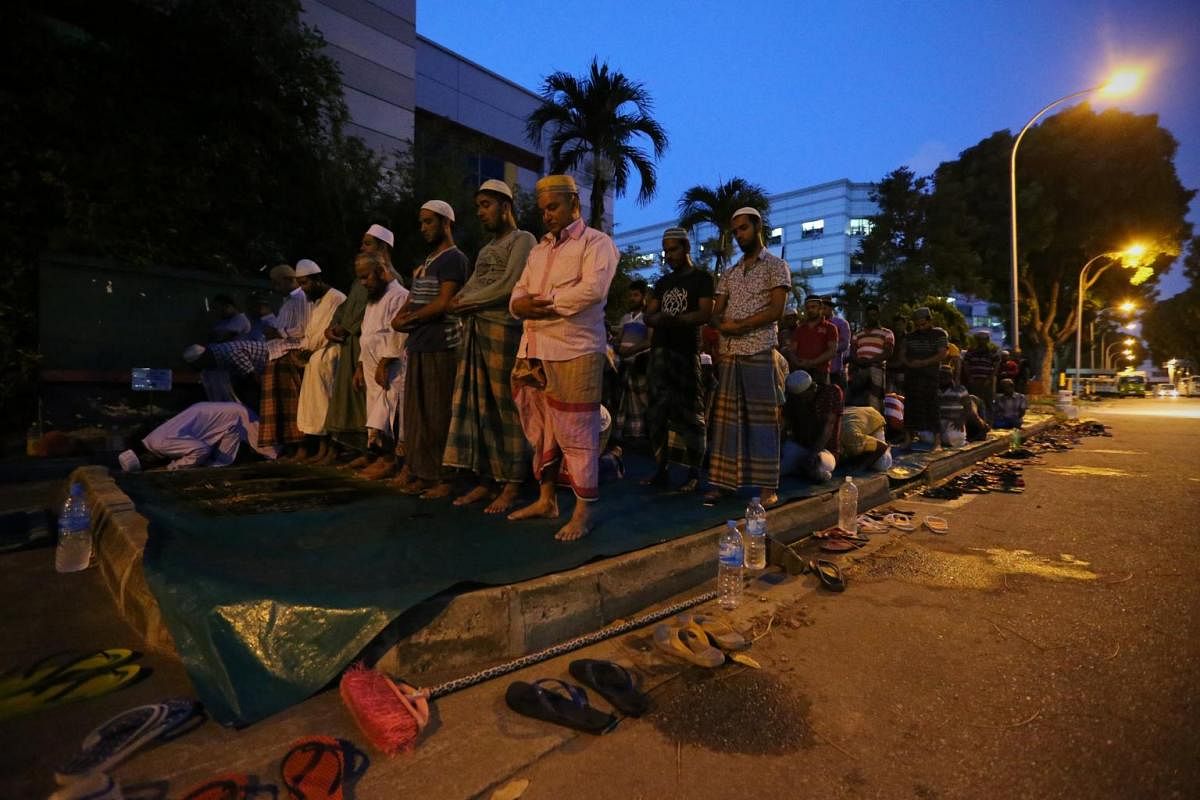
ST PHOTO: NEO XIAOBIN
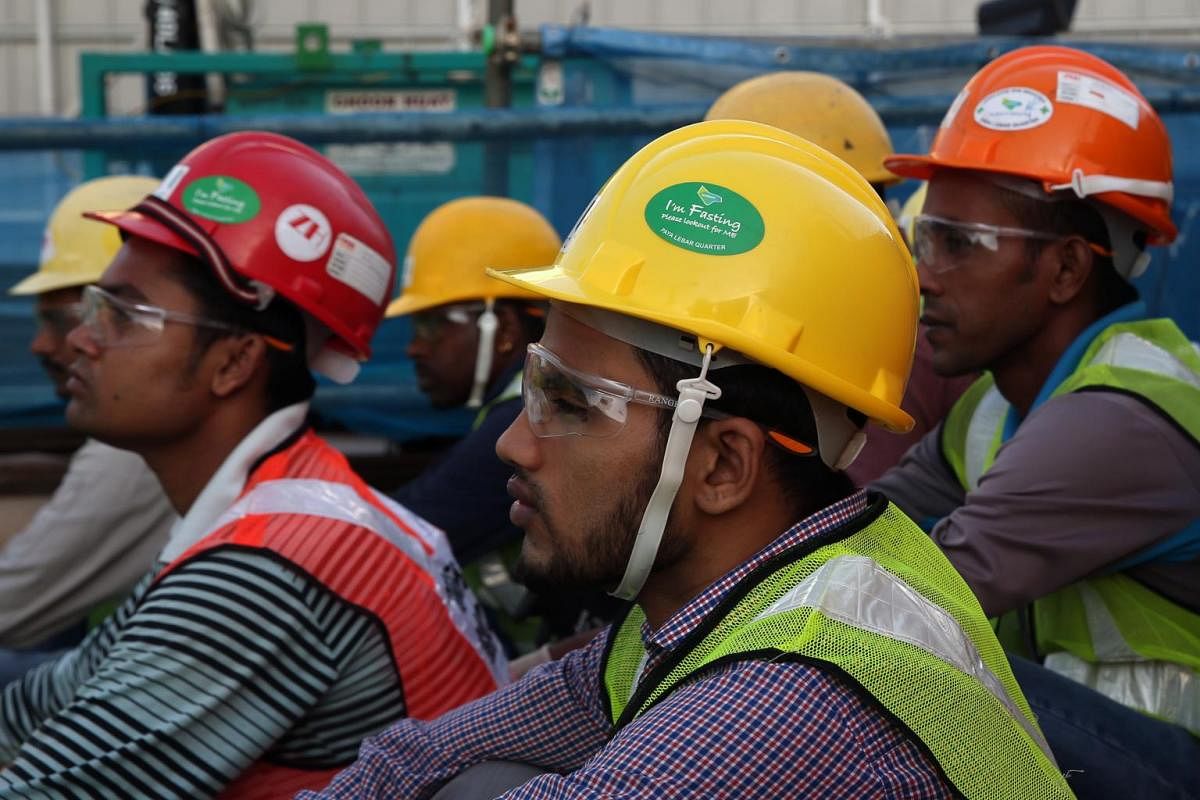
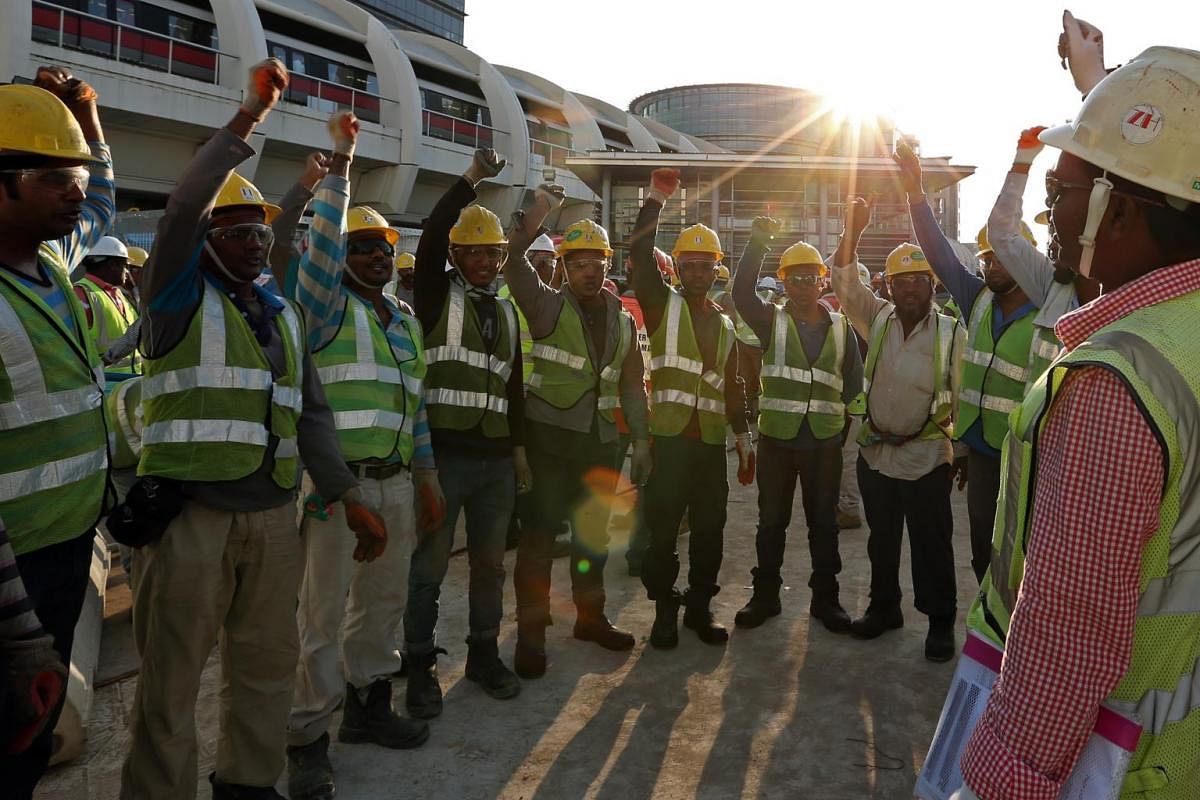
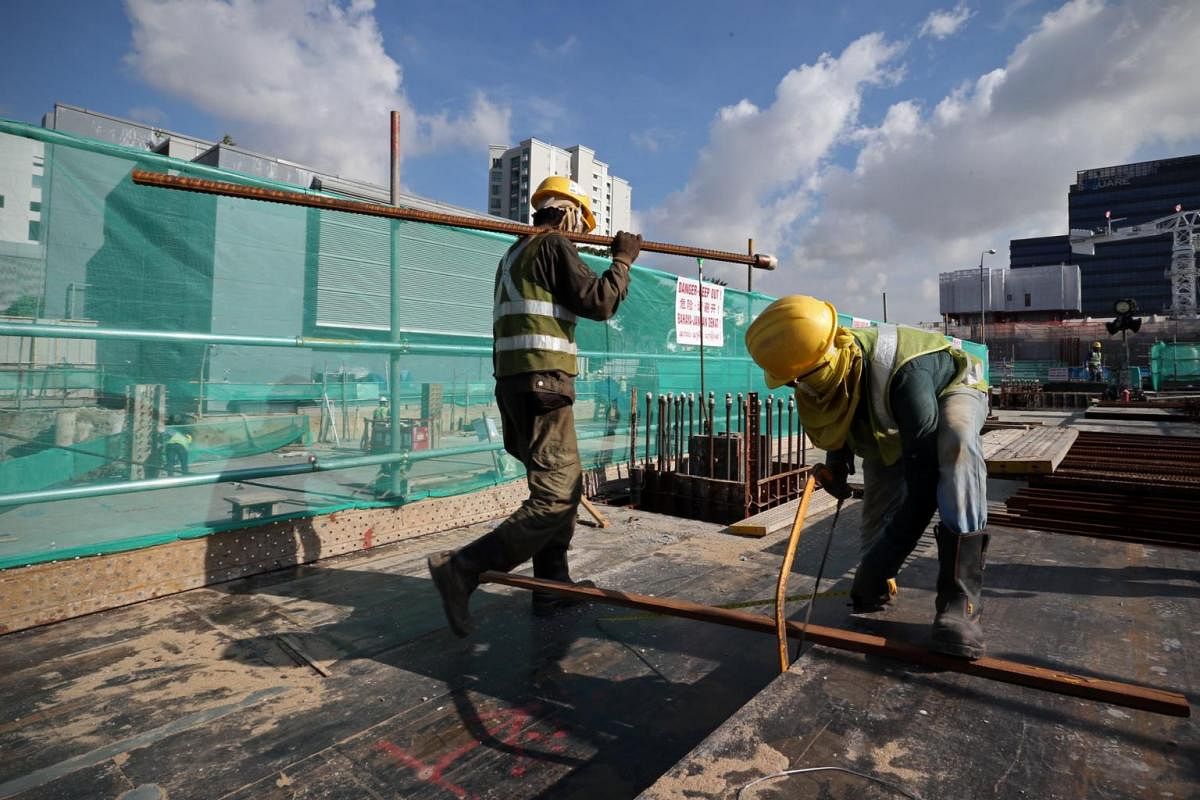
ST PHOTO: NEO XIAOBIN
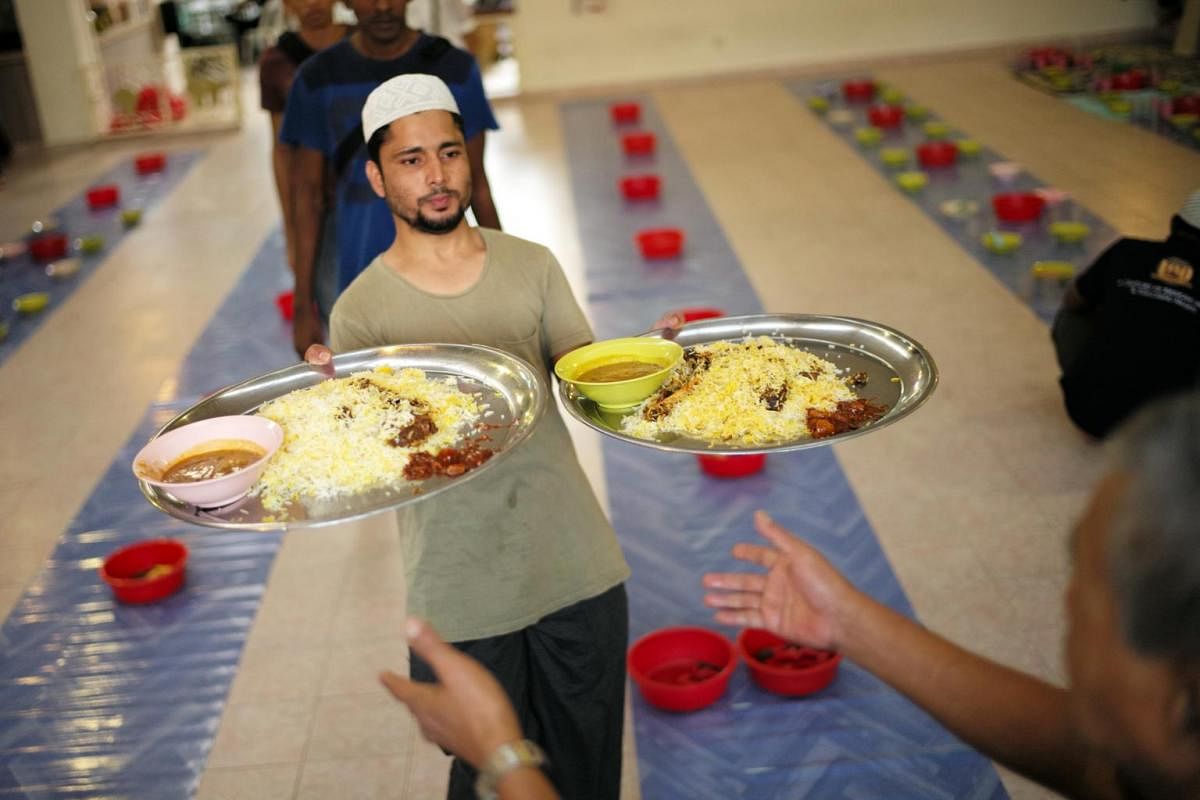
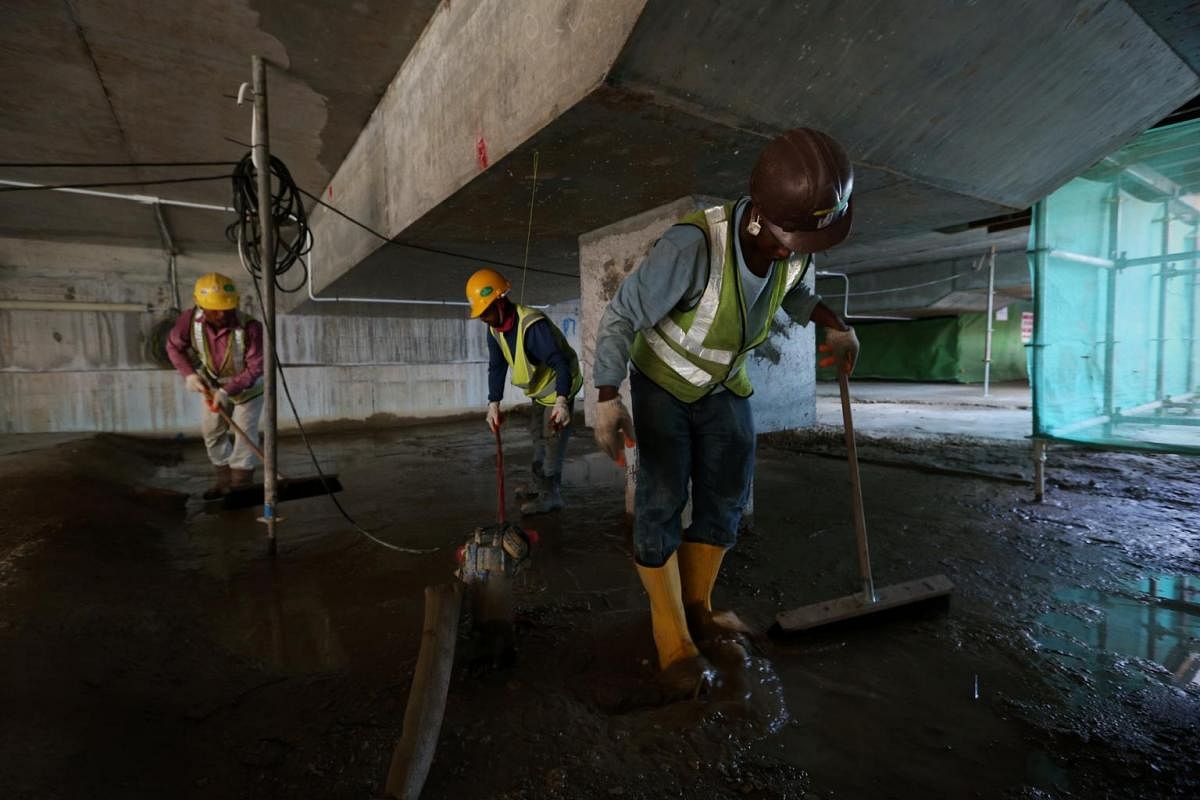
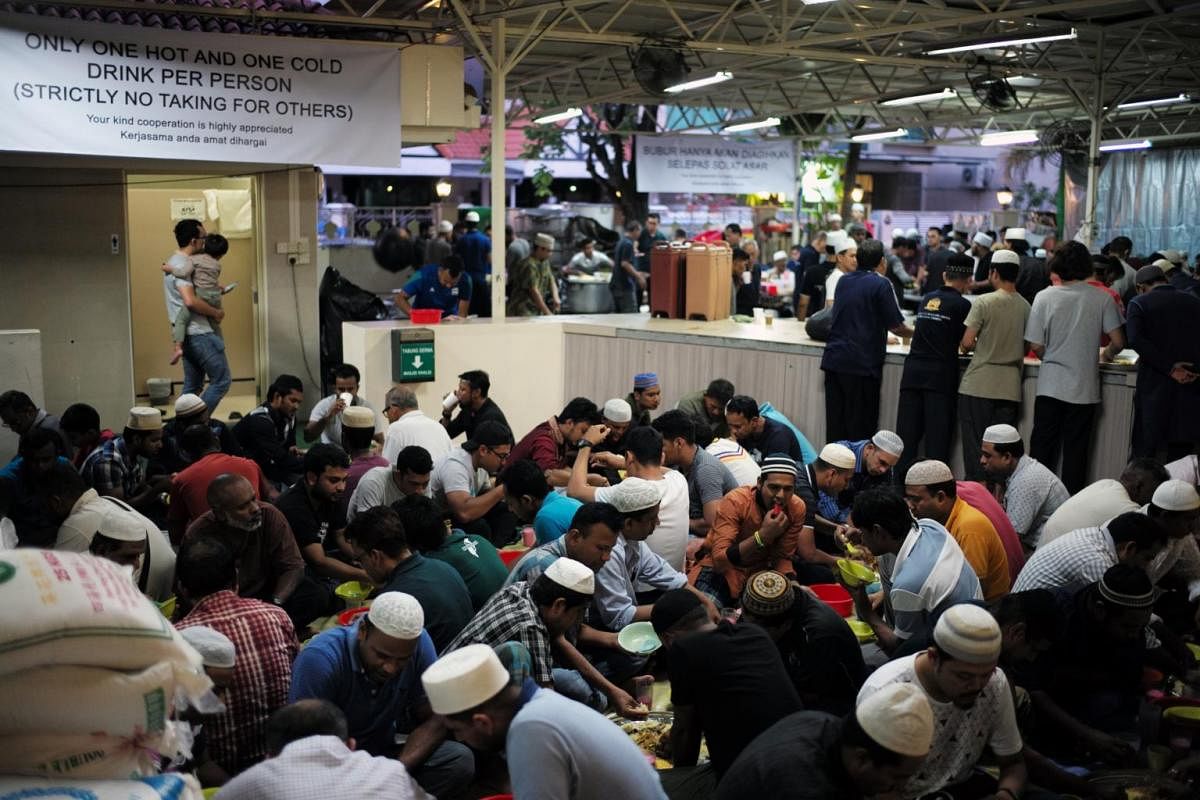
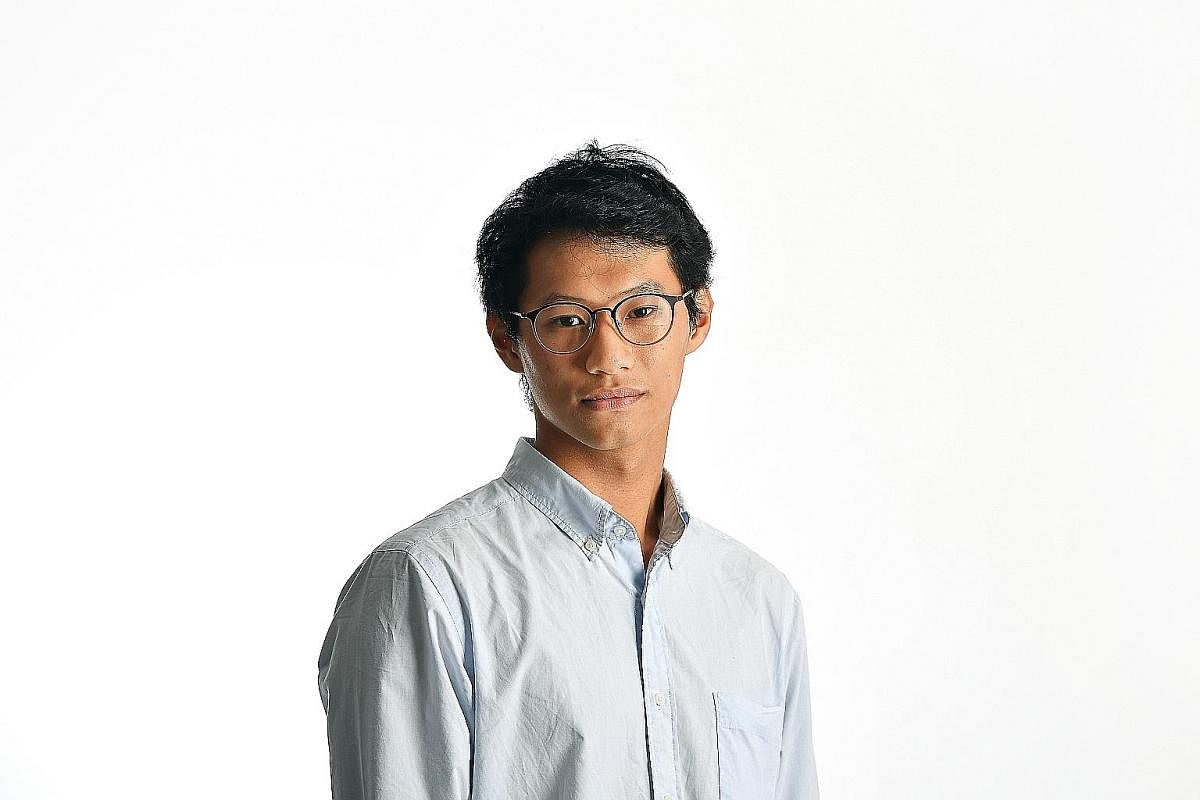
Until this year, construction worker Syedur Rahman Liton had yet to complete a Ramadan fast since arriving in Singapore seven years ago.
"The sun is too strong and it is very difficult to fast while working," said the 37-year-old, who hails from Bangladesh.
Although the practice of fasting from dawn to dusk is obligatory for Muslim adults during the holy month, the strenuous work and trying outdoor conditions make it difficult for migrant workers in the construction sector.
As of December last year, Singapore housed more than 315,500 foreign workers on construction work permits. A large number of these are from Bangladesh, where 86.6 per cent of the population are Muslim.
Some employers have taken steps to ease the difficulties faced by workers during Ramadan, which this year ended last Saturday.
For example, the construction firm Lendlease, which is overseeing work on the new Paya Lebar Quarter, a mixed-use development, has procedures in place to ensure that fasting workers are not overtaxed.
Supervisors conduct safety briefings every morning and fasting workers are tagged and assigned less strenuous activities out of the heat of the sun. But most work situations are not as ideal.
"I'm lucky because my supervisor is also Muslim," said Mr Liton, whose employer is a subcontractor for Lendlease. "Some supervisors in the past were not aware or sensitive and do not conduct checks like this."
Besides enduring the physical struggle of fasting, migrant workers also have to deal with the loneliness of observing Ramadan away from their homes.
Mr Liton, for instance, left behind his mother and two brothers, as well as a niece and a nephew.
Many will break fast with friends or co-workers in public spaces, such as the Masjid Khalid Mosque in Joo Chiat Road.
The 100-year-old mosque hosts over 800 people every day for the breaking of fast during the month of Ramadan, and a large proportion of these are migrant workers.
Some, like 22-year-old Sheik Mamun, have chosen to give back to the mosque during their free time, helping to set up and clean up after the giant meals that take place in and around the 550 sq m mosque.
As Ramadan is traditionally a time for charity and giving, mosque chairman Alla'udin Mohamed, 64, calls the huge group of migrant workers a "blessing".
"We need to come forward, to encourage them to feel at home because they are away from home," he told The Straits Times.
Others are less fortunate.
Job leader Mohammed Ubayed Ullah, 29, and his friends do not have a comfortable area like a mosque near their dormitories and make do by spreading a tarpaulin by the road for their prayers.
Mr Liton, who is also a published poet here and in his home country, echoed Mr Alla'udin's call for empathy and integration. "No matter what we do, we are all human," he said. "If you cut us, we bleed just the same."
Despite the hardship that most still face during Ramadan, migrant workers have, with a little help, found ways to celebrate their holy month. Take Mr Liton, for example. Thanks to good management and favourable circumstances, he has finally been able to complete his fast for the first time since coming to Singapore.
Join ST's WhatsApp Channel and get the latest news and must-reads.
A version of this article appeared in the print edition of The Straits Times on June 26, 2017, with the headline Their test of faith. Subscribe

